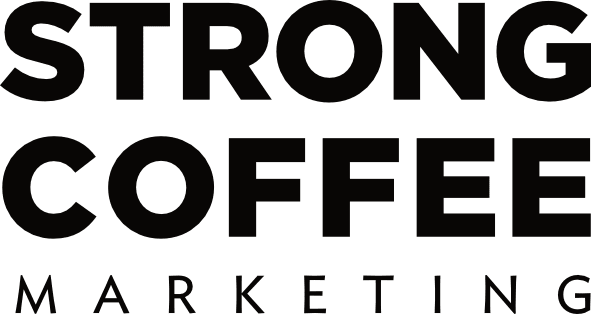As legalization looms in July, a tug-of-war is being played out between the government and licensed producers in regards to how marijuana should be marketed and branded in Canada. We’re seeing licensed producers ban together to propose their wish list on branding regulation, and the Trudeau government suggesting their own stricter solution. This really is the wild west of marijuana marketing in Canada, and it’s going to be interesting to watch it all play out. You have a government hell-bent on ensuring kids and teens cannot get their hands on legal weed, and companies looking for ways to differentiate themselves from their competition to become profitable and help pioneer this brand new market.
In my eyes, the government is being over cautious (as governments usually are) with their branding guidelines for marijuana. They’re asking for packaging that aligns with the cigarette model: display graphic health warnings, adhere to standardized lettering styles and limit the use of colors and “brand elements”. They’re also banning celebrity endorsements and consumer testimonials. In short, this plan ultimately is stricter than cigarette guidelines where companies can still use ‘brand elements’ such as their logo on packaging.
On the other side of the board, you have 17 licensed producers joining together with Advertising Standards Canada to build the Coalition for Responsible Cannabis Branding. Their plan better balances the need to develop a brand while still protecting youngsters. This coalition agrees to use the Advertising Standards of Canada as a check and balance for all marketing in the industry, to allow simple branding for differentiation purposes, responsible use statements and to never market to underage individuals.
When you start digging a little deeper into each party’s wish list, you begin to see some flaws in their thinking. This is most evident in the governments wish to squash branding and branding elements. This is a huge mistake. It may be the go-to for the cigarette industry today, but for a brand-new industry, this will be a killer. Let’s face it, the cigarette industry has had a great run. They were able to advertise to their hearts delight, build their own distinct brands, pay off doctors to say whatever they wanted and pay celebrities to promote their products. This was on-going for 70+ years before government regulation took hold in the mid-1960s. These companies spent billions on building their brands before getting their hands slapped. Cigarette companies, as of late, have suffered from these vast changes in regulations, however considering they purposefully deceived the public for decades while profiting along the way… they deserved their comeuppance.
Fast forward to today. You have a government proposing the same restrictions and a brand-new industry that intends to be responsible, truthful and honest to the public. This industry has the potential to significantly diversify Canada’s economy, and put us on the map as the first G7 nation to legalize marijuana. I know the Trudeau government wants the marijuana business to be successful, so they need to provide these companies leading that charge the opportunity to be successful. These companies will need to brand themselves and their products in order to differentiate themselves in this crowded marketplace. Marijuana can come in hundreds of different flavours, strains and potencies. Brand recognition will play a major role as customers try the endless array of products.
Not allowing reviews/testimonials is also a problem in my opinion. Society is used to checking reviews for feedback on the products and services they enjoy. It’s literally engrained into society – you see reviews on Google, Facebook, apps, alcohol, food, services and hundreds of other places today. I think enforcing this ban on reviews would be quite difficult as well, with many websites already dedicated to reviewing marijuana strains. Reviews also make companies more responsible, by forcing them to up their game if they are lacking in certain areas of their business. Let the people judge these businesses, not the government.
I agree that packages should contain information on responsible use and warnings around potential side effects. However, I don’t feel that graphic health warnings are required. We don’t require health warnings on bottles of wine, and I feel this should be the case for marijuana.
I agree that there should be no celebrity endorsements allowed. Snoop Dogg and the Trailer Park Boys may smoke marijuana religiously but the fact that these individuals are likely role models for kids and teens should completely rule out their ability to endorse products. We don’t see celebrity endorsements for cigarettes (anymore) and pharmaceuticals, and I don’t think we should see them in this industry.
While I think both sides make some very valid points when it comes to branding and marketing of cannabis in Canada, I do think that they are also short-sighted on others. The challenge will come in balancing government protections with business development and profitability. I suspect that the government is more likely to tip-toe into the marketing waters rather than leap head first. I anticipate that they will look for feedback from the suppliers, lawyers, and the public as this new industry takes shape. What may be a business-killer today, might be reviewed and edited tomorrow. Keep in mind the government wants this endeavour to be a successful one, and they are aware of the needs of businesses and economic growth. With that in mind, I expect further debate and changes in the coming months and years as legalization takes shape in Canada.
Recent Posts
Navigating the Digital Buying Cycle: Strategies for Modern Consumers
In today’s fast-paced world, where information is just a tap away, the buying cycle has transformed dramatically. Gone are the days when consumers...
Digital Marketing Strategies in the Off-Season
Ah, the off-season. For some businesses, it’s a time to kick back, relax, and sip on a well-deserved latte. For others, it’s a...
How ChatGPT is Transforming Online Search Behaviour
In the ever-evolving landscape of digital information, the way we search for answers is undergoing a seismic shift. We got used to searching...



